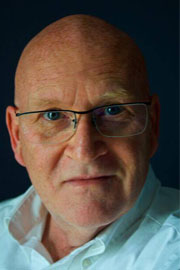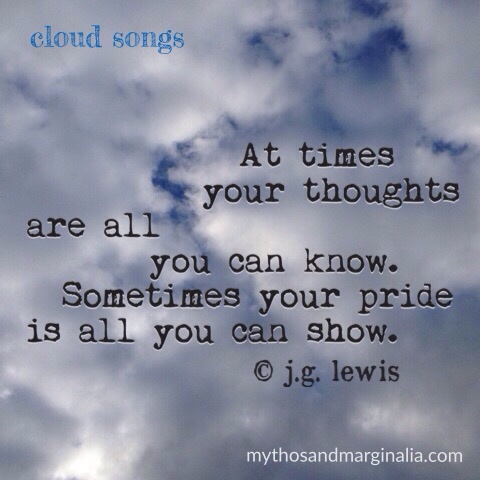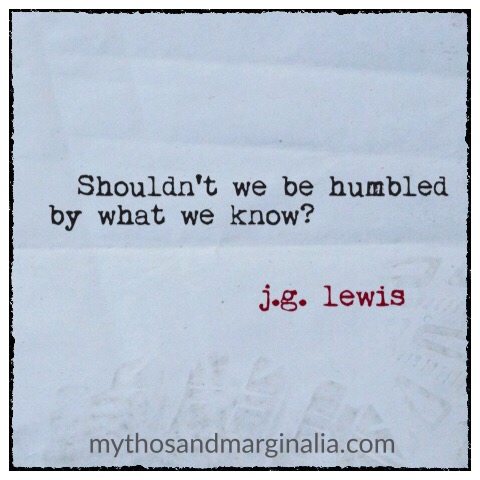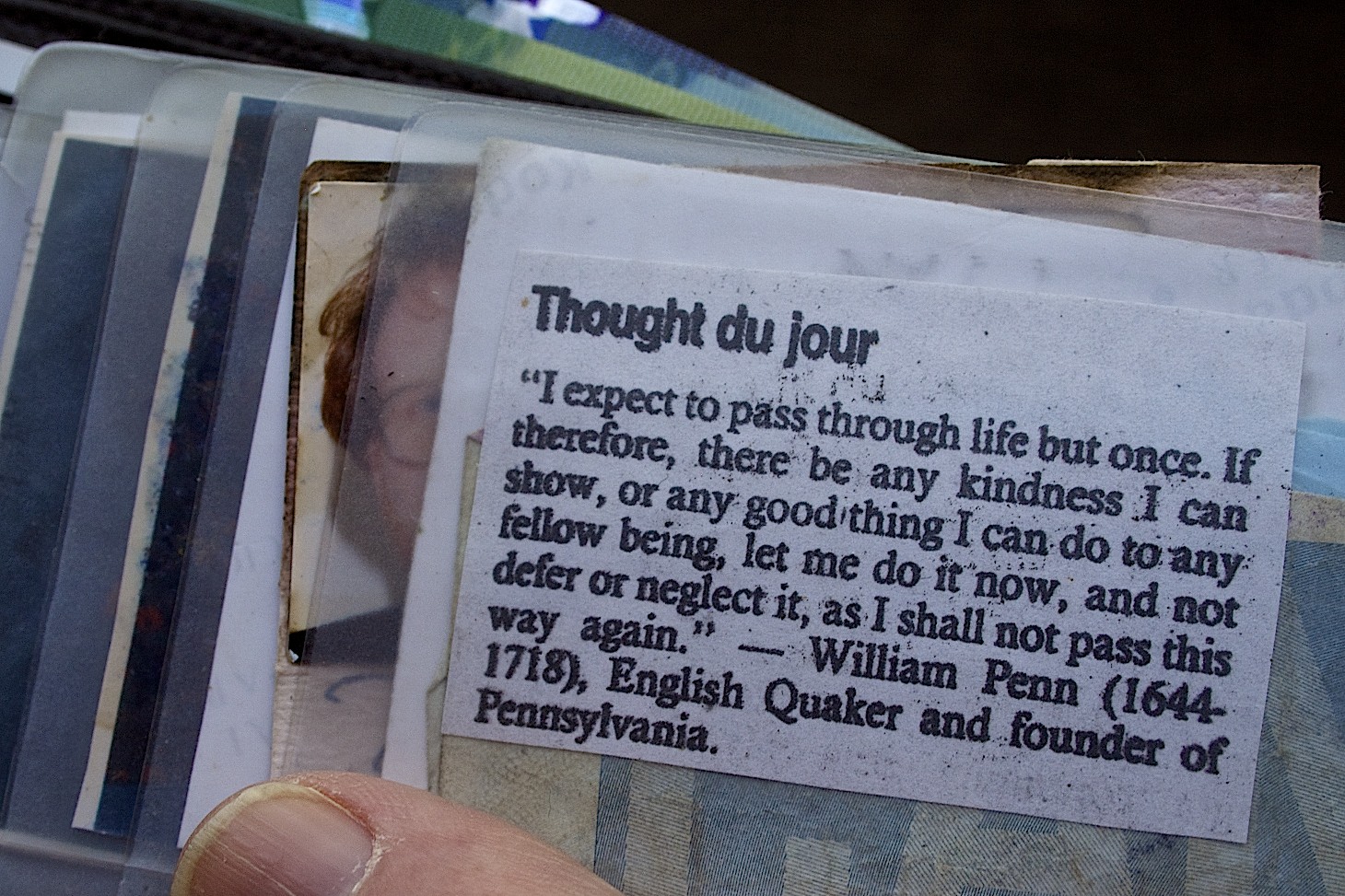Month: October 2015
At times
your thoughts
are all
you can know.
Sometimes your pride
Is all you can show.
The capacity
for knowledge
is
overwhelming.
We take in
what comes at us,
and we remember
what we need
or what we can.
A collection of recollections,
a mass of mystery unraveled,
knowing
what we must confess,
or
words of which
we should care less.
For all we are, and all
we do,
I know more now
and so do you.
Where we learn,
or how
we grow,
shouldn’t we be humbled
by what we know?
j.g.l.
Words, lyrics, poems, and quotes; some things just stick with you. I have, forever, been a collector of inspiring words from insightful writers.
I remember copying this quote from the newspaper in about 1992, and tucking it in my wallet. The quote struck a chord, as many will do, but most of the good ones are carried around in my head and not my wallet. Theses words spoke to me and I felt I needed to look at them more often, to remind myself, to be myself, and to make something of my self.
William Penn’s words have, in so many ways, become a maxim or mantra for how I try to live, or how I would like to live.
We are all on a path, through this one life, and maybe others. Along the way we meet, or pass, or interact, with people each day. Everybody, essentially, is just like us. We all put our pants or panties on one leg at a time. We all have issues we are forced to deal with, jobs or careers we love or hate, and people who rely on us to do our part, to be a link in life’s chain. We all experience joy, or suffer heartbreak or disappointment in varying degrees, and we all have blood pulsing through our veins and thoughts flowing through our heads.
And just as we all appreciate kindness offered to us, we should always make the effort to show kindness, return the kindness, or offer it unexpectedly.
The Golden Rule we are taught as children reads; ‘Do unto others, as you would have them do unto you.’
My favored quote is not that different than the Golden Rule, in principle, but I believe there is more to Penn’s words. It speaks to action, and reactions, to effort and outcome. It speaks to individualism, to personally taking responsibility for helping create a better planet for all of us to walk on. In so much, it speaks more to the self than it does to others.
The Golden Rule, or ethic of reciprocity, differs from Penn’s thoughts in that he held no expectations, other than to your self. Penn makes no mention of your efforts being reciprocated, only that you give of yourself freely and without expectation. He asks that you do it now, not to defer or neglect.
The quote has followed me around for decades, and rested in a few wallets, but when I switched up wallets a while back, the clipping and the photos attached did not make the change. Just as you go through periods where you try to lighten your load, or declutter and carry less baggage around, I took the insert out of the billfold and tucked it away.
Coincidently, or not, this was also a time where I became more focused on ‘me’ than I ever have been, and a period where what I needed to do became a priority. Unconsciously, or perhaps consciously, I did less for others, or less to keep the general balance of the world on course and I concentrated more on my own piece of the planet.
It followed a time where I felt like I was doing something, or everything, for somebody else. I became mentally and physically exhausted, was tired of bearing the brunt, and noticed I was doing nothing for myself, not really, other than working for the sake of living. It seemed as if I merely existed. There was little enjoyment, I noticed, all of a sudden, I wasn’t reading, I stopped listening to music. I stopped being the person I wanted to be.
So I tried to do all I had to do, tried to be the person I thought I had to be, and in this period of what might only be called selfishness, I became so focused on one aspect that everything else began not to matter.
I had even stopped caring for my self, and thus began to care less for other people.
You need balance in your life, and you create that equilibrium by doing for others, or providing service to one community or another. You practice empathy, and exercise humility and humanity; you offer kindness and fairness both to those known to you and total strangers. In dong so, you become a positive force to others, and to your self.
If you neglect those around you, you begin to isolate yourself and defer the reasons to find enjoyment in the patterns of life.
You pass through this life only once, it can only be more rewarding to everybody if you share pieces of yourself along the way.
© 2015 j.g. lewis




